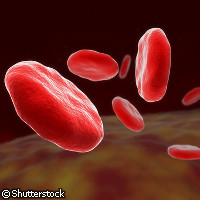New piece to the puzzle of human disease
Findings from an EU-funded study into genetic variations in blood measurements may help us better understand the link to some of the most common human diseases. Several thousand people were involved in the genome-wide study, the results of which are published in the journal Nature Genetics. EU support for the work came from the ENGAGE ('European network for genetic and genomic epidemiology'), CARDIOGENICS ('Identification of genetic roots of coronary artery disease by combining stepwise genome wide association studies with transcriptomic and functional genomic investigation of relevant genetic variants') and GENOMEUTWIN ('Genome-wide analyses of European twin and population cohorts to identify genes in common diseases') projects, which are funded under the Seventh, Sixth and Fifth Framework Programmes (FP7, FP6 and FP5) respectively. The volume of blood cells and blood cell numbers are frequently used to detect conditions such as anaemia, infection and blood-cell cancer. In this study, the team of scientists from Germany, the UK and the US measured haemoglobin levels, red and white blood cell counts, and the counts and volume of platelets (cells without nuclei containing DNA) in almost 14,000 people. They found 22 regions of the human genome connected to the development of these blood cells; 15 of these regions represent unprecedented discoveries. The team also analysed the genetic data of 20,000 people with and without disease to compare these regions with others linked to the risk of heart disease. Their research revealed that one of the genetic variants associated with platelet counts triggers an increase in heart disease risk. It was identified in a region of the human genome known to influence risk of hypertension, coeliac disease and type 1 diabetes. The team also noted that these genetic factors are specific to European populations. 'We have uncovered a novel variant linking platelet counts with heart attacks,' said Dr Nicole Soranzo of the Wellcome Trust Sanger Institute in the UK. 'Further characterisation of the regions uncovered in this study has the potential to improve our understanding of how blood cell development is linked with human diseases, including blood cell cancers.' The study represents the first ever genome-wide association study of blood measurements to be completed in groups with such high volume samples. Dr Soranzo stressed the value of studying large samples from healthy participants because of the various traits that can be measured. Separating biological processes that are fundamental to the origin of blood cells (the heart of the research) is not an easy feat, explained Dr Christian Gieger from Helmholtz Zentrum München in Germany. 'Until now, few genome-wide association studies have looked beyond single traits. But, through a systematic analysis of correlated traits we can begin to discover such shared genetic variants, forming the basis for understanding how these processes interact to influence health and disease.' The techniques used by the team, added Dr Gieger, may now allow researchers to explore the genetic basis of a range of human diseases.
Countries
Germany, United Kingdom, United States



